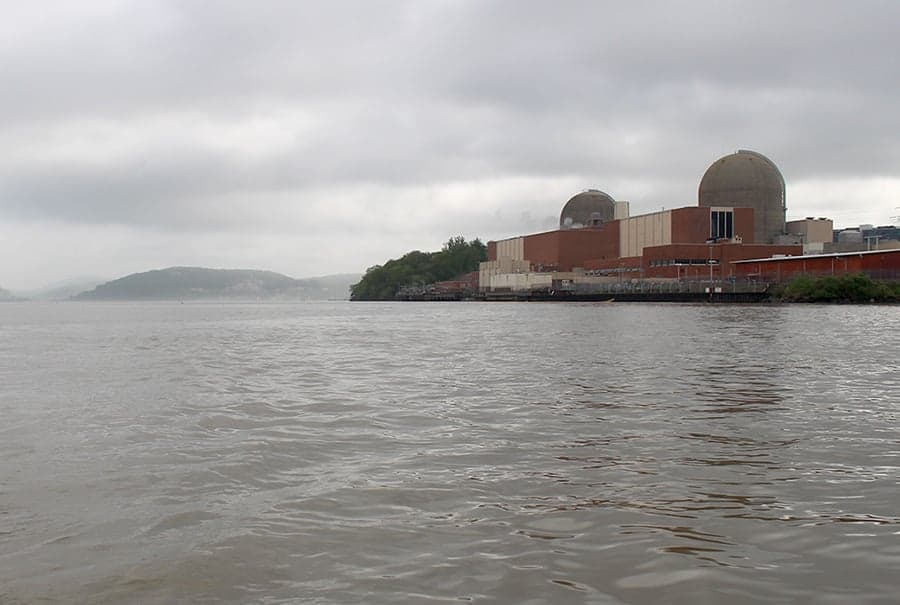
By Dan Murphy
After reading a story in the Gothamist by Rosemary Midsary, (https://gothamist.com/news/dumping-radioactive-water-hudson-river-best-option-indian-point-nuclear-plant-owner-holtec) that Holtec, the owner of the now closed Indian Point Power Plant, was planning to discharge 1 million gallons of nuclear waste into the Hudson River, I immediately thought of Pete Seeger, and his efforts over 40 years to make the Hudson clean, and liveable for fish and wildlife.
As a young boy, I used to attend the yearly concert at Croton Point Park in the 1970’s with my parents called Clearwater Festival, that Pete Seeger organized to raise funds and awareness for his work to clean up the Hudson. One of my classmates at the time at Brookside Elmentary school was Dave Matthews.
When Pete passed away in 2014, Matthews wrote for Rolling Stone, “A Pete Seeger concert was the first concert I ever saw. My parents took my brother, my sisters and me. I will never forget it. I was little. Dancing in a field in upstate New York while the grown-ups sat on the grass. My parents and family raised me on music of all sorts and Pete Seeger was a big part. He was full of hope but disappointed in our wasteful ways. He made me want to be a better person. Why don’t we lend our ears to the greatest among us. Pete Seeger fought for the working people and he fought against greed, and corruption, and war, and pollution, until the end of his life. Thank goodness for Pete Seeger.“
Perhaps that concert that Dave was talking about was the same Clearwater Festivals that I attended with my parents in Croton.
In a Feb. 10 post, Riverkeeper made the case to just say no to dumping in the Hudson. Riverkeeper writes,
Riverkeeper joins call for storing tritium-contaminated water in tanks on site while seeking a safe disposal method
Holtec International, the firm responsible for decommissioning the Indian Point nuclear power plant, has stated that it will resume discharging radioactive wastewater into the Hudson River from a spent fuel pool on the site as early as August, and possibly sooner.
After hearing presentations from Holtec and David Lochbaum, a retired nuclear engineer, reactor safety watchdog, and member of the Decommissioning Oversight Board (DOB), along with fellow environmental advocates, Riverkeeper is calling for a halt to the discharges and a means of storing the contaminated water safely in tanks on the site while safer disposal methods are evaluated. It’s time to draw the line against using the Hudson as a dumping ground for tritium, a radioactive isotope found in the wastewater. Ingestion of tritium is linked to cancer, and children and pregnant women are most vulnerable.
A groundswell of public voices is objecting to Holtec’s discharges that prioritize profit margins and expediency over the Hudson River, and local communities. Riverkeeper supports their request to explore alternatives to dispose of the tritium.
The DOB held a nearly four-hour meeting on Thursday, February 2, to discuss disposal options that would spare the River and hear community concerns from numerous residents, officials and experts.
Four readily available wastewater disposal options became clear during the meeting:
- Hold the wastewater on site. Although no definite holding time was discussed at the meeting, storage on site was. We believe an initial 12 year period would be appropriate. After 12 years, tritium’s half-life (the radioactive isotope) will have cut its activity by 50%. During this 12-year period we would like Holtec to explore separation of the tritium, solidification, and any other options that emerge.
- Transfer the wastewater to out-of-state sites. The danger of transporting radioactive waste on our roads and railways increases the risk to millions of people as accidents have and will occur in an uncontrolled environment. Even if safe transport is successful, transferring the problems of radioactive waste to other communities is not fair or equitable.
- Allow for evaporation of the wastewater. Evaporation methods for the wastewater are a poor option as after the evaporation is absorbed into the air the contaminants will fall back to the ground, covering a much wider footprint that could include schools, parks and residential areas. A consensus emerged during the DOB meeting rejecting this option.
- Discharge the wastewater in the Hudson River. This is the method the plant used while it was still operating. We believe it is time to take a precautionary approach and end the practice of dumping radioactive wastewater into the Hudson.
As with any nuclear plant, none of these options are risk free. Without research that shows the true impact of tritium on vulnerable populations, we should not take any chances to impose unnecessary risk.
The previously documented mistakes, violations and fines incurred by Holtec raise serious concerns and demand that we take the most cautious approach of the available actions that will keep this contaminated wastewater out of the Hudson River. That means storing it on site for at least a 12 year period, allowing contamination levels in the water to decrease, and for better, less dangerous disposal options to be developed during that time.
With Holtec announcing its plan to begin wastewater discharges in August of 2023, and possibly sooner, there is a level of urgency for action. Riverkeeper is reaching out to decision-makers on the local, state and national level to explore every possible action and option that will halt any further harmful discharges by Holtec into the Hudson River.
Riverkeeper will be releasing an action for the public soon. Together, we can protect and restore the Hudson River for the health and safety of all who depend on it.





